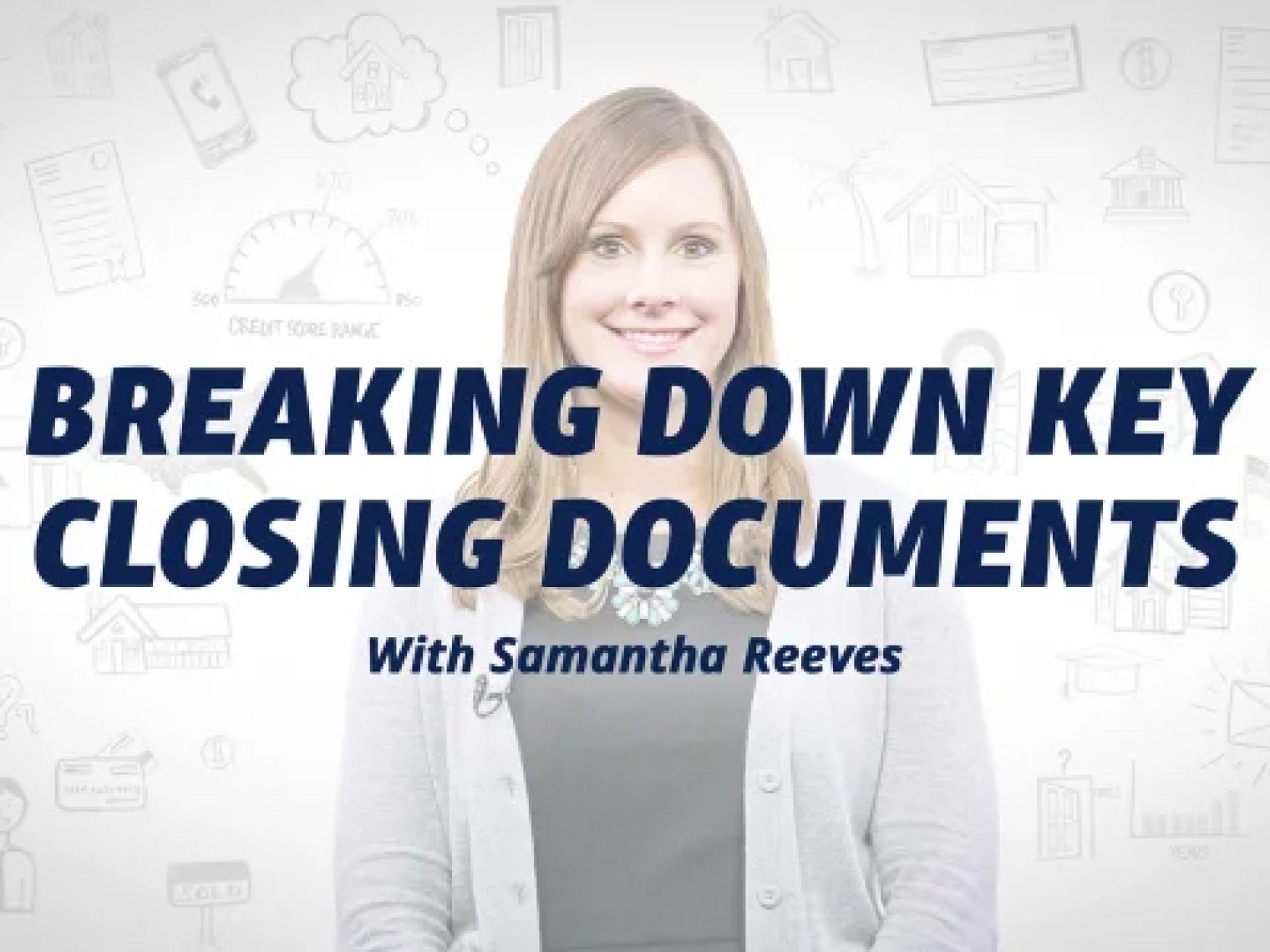Owning a home not only offers a sense of security but can also lead to significant tax savings. Discover the top tax deductions and credits available to homeowners so you can enjoy the perks of homeownership – even at tax time.
What Are Tax Deductions?
Tax deductions are specific expenses or items that can reduce your taxable income, lowering the amount of taxes you owe.
The IRS (Internal Revenue Service) offers deductions to encourage certain behaviors, such as homeownership, charitable giving and the coverage of substantial medical costs, by providing financial relief through reduced tax obligations.
Standardized vs. Itemized Deductions
A standard deduction is a fixed, predetermined amount established by the tax authorities that is available to all eligible taxpayers, regardless of their actual expenses. On the other hand, itemized deductions require taxpayers to list and calculate their specific deductible expenses.
Saving receipts is crucial when itemizing deductions. Receipts serve as evidence for the IRS in case of an audit. Homeowners should meticulously save receipts related to home improvements, property taxes, mortgage interest payments, and any other itemizable expenses. Digital record-keeping can be a practical solution, ensuring these documents are organized and easily accessible.
Common items that people itemize on their taxes include mortgage interest, property taxes, medical and dental expenses, charitable contributions, educational expenses and more.
Let’s take a look at how standard and itemized deductions compare side by side:
| Aspect | Standard Deduction | Itemized Deduction |
|---|---|---|
| Who can use it? | Available to all taxpayers, regardless of expenses | Available to all taxpayers; however, it only makes sense to itemize if your expenses exceed the standard deduction amount |
| Deduction Amount | Fixed, set by the IRS | Varies based on qualifying expenses you can prove with receipts |
| Documentation Required | No receipts are needed | Must provide receipts and records for your expenses |
The amount of income you can deduct will differ depending on which tax filing method you decide on. If your expenses exceed the standardized deduction, itemizing may help you save more on your taxes. But if your expenses are low or similar to the standardized deduction, using the standard deduction is easier and still reduces your taxable income.
The decision to itemize or take the standard deduction primarily hinges on whether your itemizable deductions exceed the standard deduction amount. For an easy shortcut, list potential itemizable deductions. If the sum of these exceeds the standard deduction for your filing status, itemizing is beneficial. However, remember that this decision isn't just about the numbers. Consider the time and effort required for keeping detailed records and any potential audit risk associated with itemizing.
4 Tax Breaks for Homeowners
To ensure your eligibility for homeowner tax deductions, make sure to consult the IRS’ Tax Information for Homeowners.
Now that we’ve covered the basics, let’s dive into 5 tax breaks that your homeowner status may reward you.
1. Mortgage Interest
Homeowners can deduct mortgage interest on their taxes by itemizing their deductions on their federal income tax return using IRS Form 1040.
The likelihood of mortgage interest payments pushing homeowners to itemize depends on the loan amount, interest rate, and the duration for which the mortgage has been held. Typically, interest payments are higher in the early years of a mortgage.
To qualify for this deduction, your mortgage must be for a primary residence or a second home, and your mortgage debt must be under $375,000 for single filers and $750,000 for those filing jointly.
You must provide your lender's Form 1098, which details the interest paid during the tax year.
Veterans United Form 1098
If you are obtaining a home loan through Veterans United, you can find your Form 1098 on myVU.
Lenders must fill out Form 1098 if you paid them more than $600 in interest over the year. This form will also report any real estate tax paid if you set up escrow. This one document will make it easy for you to determine if you should consider itemizing your taxes or claim the standard deduction.
2. Property Taxes
Most homeowners must pay property taxes at the state and local levels. If you are a Veteran, you may qualify for a property tax exemption at the state level. To qualify for a property tax deduction, you must own property and pay real estate taxes on it.
Homeowners can deduct property taxes by itemizing their deductions when filing their federal income tax return using IRS Form 1040. Joint filers can deduct up to $10,000 of property taxes, while single filers can deduct up to $5,000.
3. Discount Point Fees
Discount points are fees you pay to lower the interest rate on your mortgage. Typically, one discount point is equivalent to 1% of the mortgage cost. Discount points are usually tax-deductible, but the filer must meet certain criteria set by the IRS:
- Primary residence: The loan in question must be used to purchase or improve your primary residence. Vacation homes and investment properties generally do not qualify.
- Deductible points: The points paid must be legitimate discount points, typically paid to lower the interest rate on the mortgage. The IRS considers these points as prepaid interest.
- Origination fee: Ensure the points you paid are included in the origination fee. This fee should be itemized on the settlement statement you received during your mortgage closing.
- Itemize deductions: To claim the deduction for discount points, you'll need to itemize your deductions on Schedule A of your federal tax return (Form 1040).
- Deductible amount: The amount of discount points you can deduct will vary based on your specific mortgage terms and the number of points paid. You can typically deduct the total amount of points paid in the year of purchase.
- Form 1098: Your lender should provide you with a Form 1098, which summarizes the deductible mortgage interest, including points paid. Ensure that the information on this form is accurate.
- Maintain documentation: Keep records, including the Closing Disclosure from your mortgage closing, to support the points you paid. These documents serve as evidence of the discount points you claimed.
4. Moving Expenses
Unfortunately, many moving expenses no longer qualify for tax deductions. The Tax Cuts and Jobs Act (TCJA) passed in 2017 eliminated most moving expense deductions for tax years 2018 through 2025.
However, service members who moved due to military orders or PCS can deduct a portion of their moving expenses. Generally, the IRS allows the following PCS-related expenses to be deducted:
- Gas and vehicle mileage costs
- Renting a moving truck or trailer
- Packing expenses
- In-transit storage
- Moving insurance
Service members who moved due to a PCS order can deduct unreimbursed moving expenses on IRS Form 3093. A separate Form 3093 should be used for each qualifying move.
Nondeductible Home Expenses
While homeowners can benefit from various tax deductions, there are also common homeowner expenses that are generally non-deductible from taxes:
- Basic homeowners insurance
- Homeowners Association (HOA) fees
- Home repairs and maintenance
- Utilities
- Closing costs
- Home inspection fees
- Home improvements for aesthetic purposes
- Home depreciation
- Earnest money
Everyone’s situation is different. It is highly recommended to consult with a tax professional for a complete picture of what you can and can’t deduct.
Homeowner Tax Questions
Let’s answer some of the most common tax deduction questions new homeowners ask.
Is There a VA Loan First-Time Homebuyer Tax Credit?
The first-time homebuyer tax credit is a key feature of the First-Time Homebuyer Act of 2024 would allow a $15,000 refundable tax credit for first-time homebuyers. If passed, this tax credit would be available for all first-time homeowners.
Any homebuyer credit could significantly impact the housing market for first-time buyers. It would essentially increase purchasing power, allowing more individuals to enter the housing market. This could lead to increased demand for homes, potentially driving up prices in certain areas. However, it's essential to consider that such a credit might not completely offset the challenges of high housing prices and interest rates and may put more strain on a housing market that is already facing record inventory shortages. The credit would provide no immediate relief on the initial costs of buying a home, such as the down payment or closing costs.
Is the VA Funding Fee Tax Deductible?
The VA funding fee was previously tax-deductible as part of the mortgage insurance premium deduction. However, that deduction expired at the end of 2021 and has not been renewed. While the VA funding fee isn't tax-deductible, it’s important to remember that it helps keep the VA loan program running — allowing future Veterans and service members to buy homes with little to no down payment.
Is Home Sale Income Taxed?
Homebuyers selling their current home should be aware of capital gains tax, which is a tax on the profit of an asset. Capital gains tax applies to all mortgage types – including VA loans.
When selling a primary residence, the profit you earn is exempt from capital gains tax up to the first $250,000 for a single-filing taxpayer or the first $500,000 in profit for joint filers.
Profits over those thresholds are usually taxed at the normal rate.
Is There a Tax Credit for Energy Efficient Mortgages?
The IRS offers “Residential Energy Tax Credits,” which would apply to homeowners taking out an energy-efficient mortgage (EEM). The IRS offers up to $3,200 for homeowners who make qualified energy-efficient home improvements.
In essence, homeowner tax deductions are powerful tools that can significantly alleviate financial burdens associated with owning a property. These deductions offer avenues for savings, providing homeowners with tangible ways to reduce their tax liabilities. Leveraging these deductions effectively can not only ease immediate financial strains but also contribute to long-term financial stability and increased savings.
For any additional questions, reach out to a Veterans United home loan specialist at 855-870-8845.
How We Maintain Content Accuracy
Our mortgage experts continuously track industry trends, regulatory changes, and market conditions to keep our information accurate and relevant. We update our articles whenever new insights or updates become available to help you make informed homebuying and selling decisions.
Current Version
Jan 2, 2026
Written BySamantha Reeves
Figures updated for 2025 tax year.
Jan 22, 2025
Written BySamantha Reeves
Accuracy checked content and updated for tax season.
Veterans United often cites authoritative third-party sources to provide context, verify claims, and ensure accuracy in our content. Our commitment to delivering clear, factual, and unbiased information guides every piece we publish. Learn more about our editorial standards and how we work to serve Veterans and military families with trust and transparency.
Related Posts
-
 How to Make an Offer on a HouseOnce you’ve found the right home, you need to know how to put together a purchase offer. Learn tips for putting an offer on a house with a VA loan.
How to Make an Offer on a HouseOnce you’ve found the right home, you need to know how to put together a purchase offer. Learn tips for putting an offer on a house with a VA loan. -
 The Closing Disclosure ExplainedWhen it comes to finalizing your homebuying journey, few documents carry as much weight and importance as the Closing Disclosure.
The Closing Disclosure ExplainedWhen it comes to finalizing your homebuying journey, few documents carry as much weight and importance as the Closing Disclosure.

